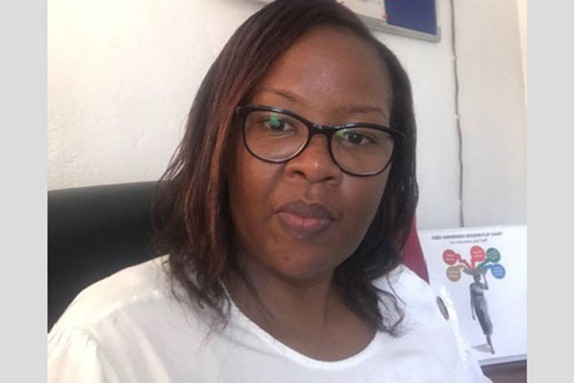”I needed to restore their crowns back”
Stella Munyi, Sexual and gender-based violence prevention and response delegate with Canadian Red Cross, has been working in the field of Protection since she joined Red Cross in the year 2006 first as a volunteer. Just like fellow colleagues in the movement, she has been working around the clock to ensure women in South Sudan get assistance and are protected from violence.

With the great support from Canadian Red Cross, Red Cross and Red Crescent movement partners and National Society volunteers and staff, she has been able to utilize her experience in protection work by supporting the National Society in reaching out to women who are survivors of gender based violence by supporting their access to services, fight stigma, shame and trauma through the Health Bodies, Health Minds Project.
Stella Munyi shares: ”During the post-election violence that erupted in Kenya in 2007-2008, I got to witness the level of violence that was vested upon women and girls from month old babies to 100 years grandmothers. At first I felt helpless when traumatic stories of children watching their parents getting killed got narrated by those we assisted, but as numbers of women who were sexually and physically assaulted began to rise, I knew I had to do something. Together with fellow colleagues from Kenya Red Cross, we started to offer psychosocial support to these women as well as accompanying them to hospital for medical support. This not only helped them begin their journey towards recovery but also helped us reach out to more women who at first were ashamed of seeking support.
The upsurge of refugees in Dadaab refugee camp in the year 2011, brought again an opportunity for me to work closely with women refugees from Somalia and South Sudan who were fleeing their countries due to war. I vividly remember women arriving in the camps with children tied on their backs after walking for days, only to realize when they reached the camp, the kids strapped on their backs were no more. Women who were sexually assaulted along their way to the refugee camp were traumatized to an extent of having to cloth their daughters in several pieces of clothes that was to act as a restraint for perpetrators of this heinous acts.
All this and many more incidents I encountered while working with vulnerable communities in Kenya and South Sudan broke my heart but fueled the desire to work closely with women and girls to help prevent and respond to cases of gender-based violence. I needed to restore their crowns back.”
According to the WHO, 1 in 3 women experience physical and/or sexual violence in their lifetime. This is a major public health issue which if not addressed leads to physical, sexual, or mental harm to the women.
”My dream is that one day we get to live in a just society where women are respected and protected by all and given opportunities because they deserve them and not just for the sake of fairness”
Having women in leadership positions within the movement lead the gender agenda and help break the barrier of inclusivity will not only contribute to change the society norms and expectation on who can lead but also give voice to women issues that have been neglected for long, such as fight against gender based violence and gender inequalities.
Stella Munyi
Canadian Red Cross
